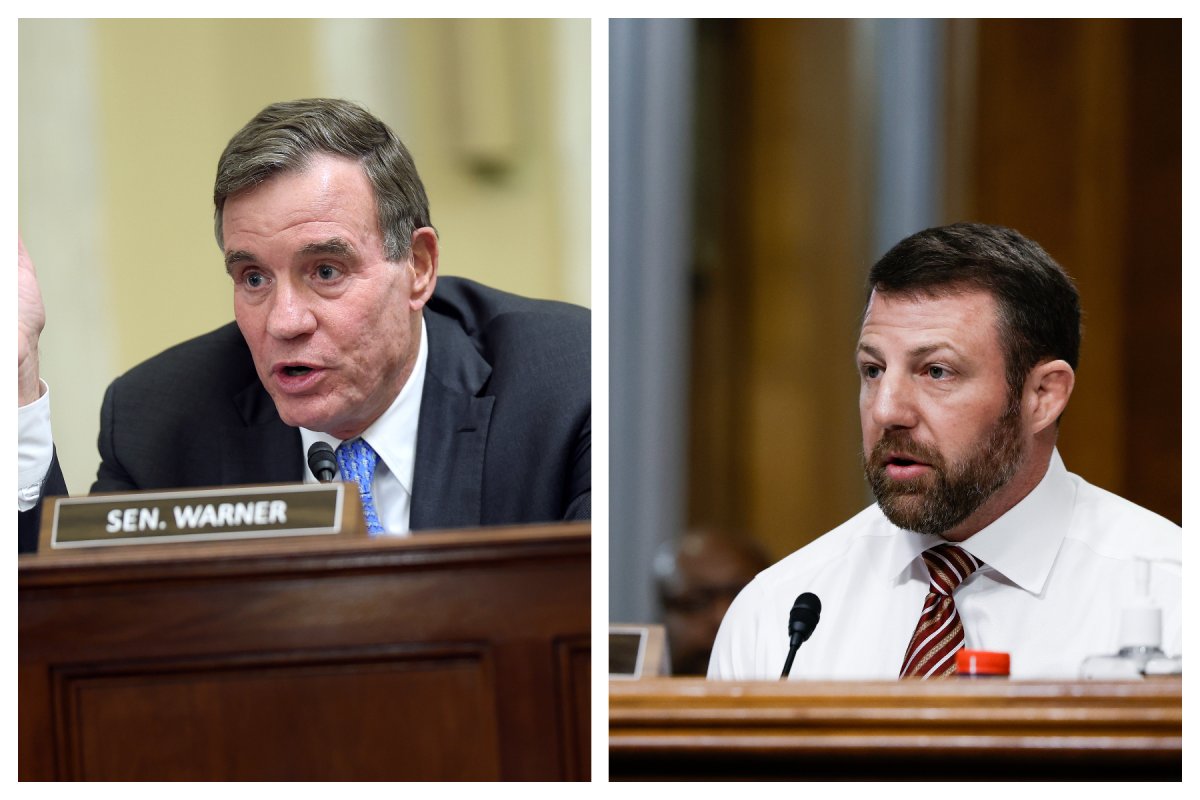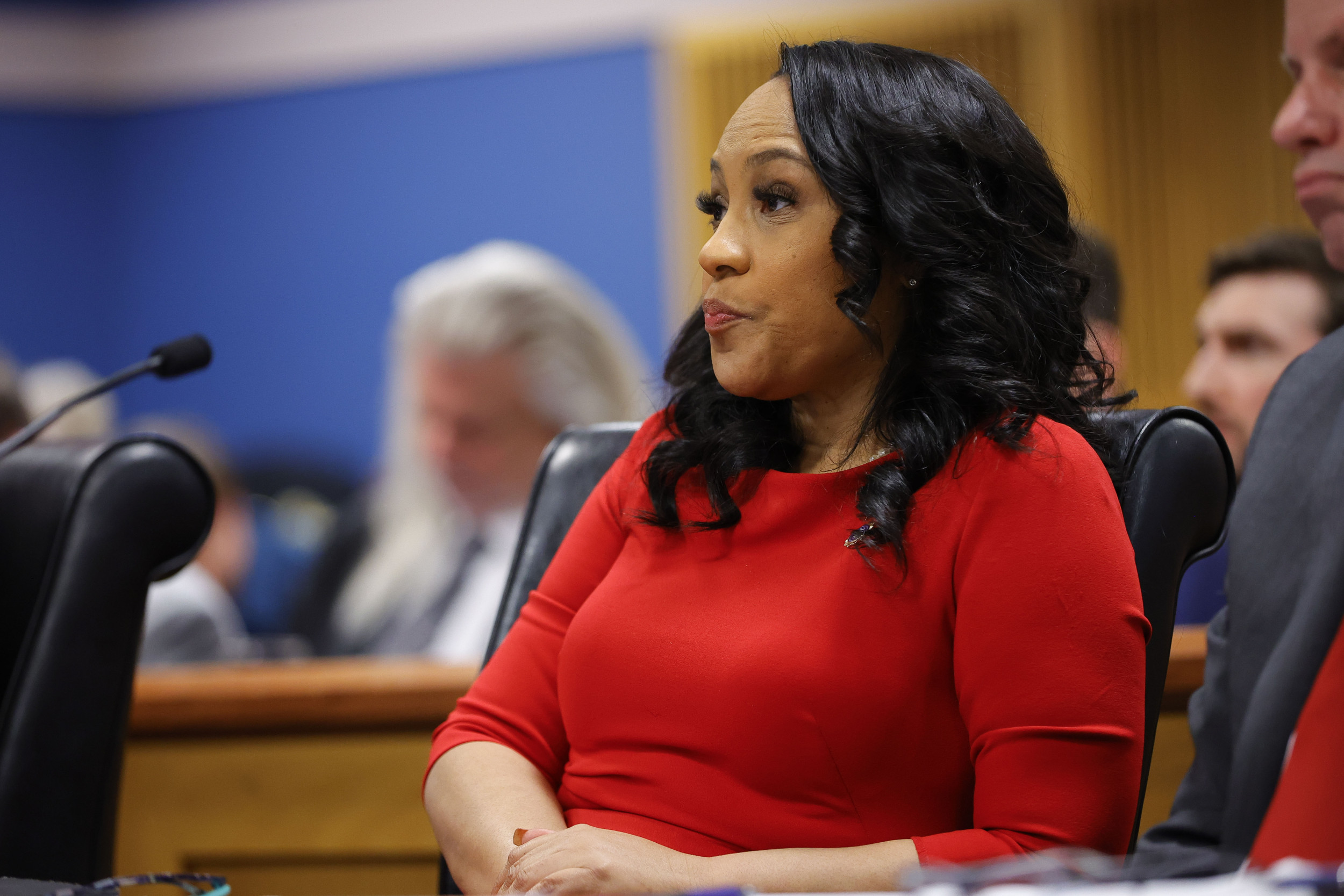Two Senators have purchased a series of bonds in states they represent, raising concerns about potential conflicts of interest, and experts spoke to Newsweek on the matter.
According to an analysis of stock data aggregated by Quiver Quantitative, Republican Oklahoma Senator Markwayne Mullin and Democratic Virginia Senator Mark Warner have collectively purchased 10 bonds worth as much as $3,450,000 since January.
While it is permitted for members of Congress to buy and sell stocks, doing so has long been criticized by Republicans and Democrats alike over concerns the practice may facilitate insider trading if lawmakers are privy to information about assets that could move markets. Inversely, there are concerns politicians with stock holdings can influence the assets they hold to inflate their share value.
In 2021, New York Democrat Alexandria Ocasio-Cortez called the practice of lawmakers trading stocks "absolutely wild" and in recent years, legislation has placed restrictions on politician's ability to do so. The 2012 Stop Trading on Congressional Knowledge Act (STOCK Act), for instance, prohibits members of Congress and other government employees from using non-public information for private profit. It also requires the reporting of certain transactions to the secretary of the Senate or the clerk of the House of Representatives within 45 days.
This has not prevented lawmakers from purchasing various financial assets, including municipal bonds, which local governments rely on to finance infrastructure projects. Often, interest received by holders of bonds is exempt from taxation. The Congressional Research Service estimates this tax exemption costs the federal government some $42 billion a year in lost revenue.

It is this type of bond that Mullin and Warner purchased in the first few weeks of 2024. On January 18, Mullin, who sits on the Senate committee on health, education, labor and pension, purchased a bond valued at between $50,001 and $100,000 in Oklahoma State University Agricultural, a university that receives federal and state funding.
From January 19 to January 26, he bought four further bonds, all valued at between $100,001 and $250,000. One was in the Oklahoma County Oklahoma Financial Authority, a public trust that invests in state projects, including educational, medical and housing projects. Another, purchased on January 23, was in a state school district, Tulsa County Oklahoma Independent Schools District.
On January 24, he bought a bond in a state economic development fund, McClain County Oklahoma Economic Development and the final bond, purchased on January 26, was in the city of Broken Arrow, Oklahoma.
Warner, on the other hand, purchased similar bonds in his home state Virginia. On January 3, Warner purchased a bond valued between $500,001 and $1,000,000 in a municipal bond funding Richmond Public Utilities.
On January 4, the Democrat, who lists infrastructure on his website as one of his priorities, purchased a $250,0001 to $500,000 bond in the Virginia Commonwealth Transportation Board, which oversees transport projects in the state. He purchased another within the same value range on January 10.
On that day, he also purchased $100,001 to $250,000 worth of public improvement bonds for the city of Petersburg.
On January 11, he purchased a bond worth between $50,001 and $100,000 from the Virginia Resources Authority, which issues loans in the state for public work.
He also purchased three similar municipal bonds in other states, one in California, one in Missouri and another in Texas.
Newsweek contacted Mullin and Warner representatives by email and website form to comment on this story.
Despite being licit, the acquisition of these bonds has been criticized by some commentators.
David O'Brien, the policy director at RepresentUS, a nonpartisan anti-corruption organization told Newsweek the transactions may create conflicts of interest.
"There's always a potential conflict of interest when public officials have the ability to promote their own personal financial interests while in office," he said. "This behavior may be legal, but it is still unacceptable. Congress needs to pass the ETHICS Act [The Ending Trading and Holdings in Congressional Stocks Act] and other legislation that would make conflicts of interest like this one impossible."
Meanewhile, Dr. Seth C. McKee, a political science professor at Oklahoma State University, said the bonds could be seen as "problematic."
"I would never profess to be an expert on financial matters like these," he told Newsweek. "That said, it seems questionable although he may not have any decision-making authority, which shields him somewhat from conflict of interest claims. Nevertheless, because he is a U.S. Senator, it comes across as problematic."
"Why not invest in things that are not as linked to policies you presumably care about and hold possible influence over?" he continued.
"There is definitely an issue of potential if not actual influence," he added.
William F. Hall, Adjunct Professor of Political Science and Business Webster at the University, St. Louis, Missouri told Newsweek that the STOCK Act has "fallen far short" of stopping politicians from pursuing their own interests.
"The STOCK Act has done very little to prevent the appearance of corruption and has fallen far short and failed in achieving the goal of ensuring that members of Congress are prioritizing the public interests over their own interests," he said. "On the positive side, however, in the dozen years since the STOCK Act was passed, it has provided at least some greater transparency into the stock trading activities of our elected officials, yet it has also highlighted why transparency alone has not been enough to prevent the appearance of corruption—or indeed, the actual occurrence of corruption."
It is not the first time Mullin and Warner's respective investments have come under scrutiny. In 2022, The New York Times reported that Warner purchased $115,000 to $250,000 in shares of Acumen Pharmaceuticals, a biotechnology company focused on Alzheimer's research and drug development, between November 2019 and June 2021. At the time, Warner, whose mother had Alzheimer's, was one of the leaders of a congressional task force involved in facilitating research into the condition. He also sat on a Senate subcommittee that oversees government health programs.
In a statement to the publication, his office said his investments were managed by an independent trustee since before he became governor of Virginia in 2002.
Meanwhile, in December, Republican representative Matt Gaetz criticized Mullin, after Quiver Quantitative found he increased his net worth by $51 million between 2018 when he was a congressman, and 2022, when he was elected to the Senate. In response, Mullin said Gaetz was criticizing his "hard-earned success."
But the trading of stocks and shares amongst Washington's elite goes far beyond the behavior of two lone senators. Indeed, according to an analysis of financial disclosures by the blog Unusual Whales, collectively, members of Congress made a total of around 11,000 transactions in 2023. These trades amounted to nearly $1 billion in volume.
Meanwhile, a 2022 New York Times investigation found that at least 97 members of Congress had purchased or sold financial assets that intersected with their congressional work.
It is incidents like these that have led to calls for further regulations to be put in place to curb lawmaker's penchant for the stock market. Senator Josh Hawley last year introduced the Preventing Elected Leaders from Owning Securities and Investments (PELOSI) Act, which has yet to pass. It would give members of Congress and their spouses six months after first assuming office to divest any holdings or put them in a blind trust and was named to mock Nancy Pelosi after news of her husband Paul's prolific stock trading throughout her tenure leading Democrats in the House came to light.
Pelosi's disclosures in 2021 showed trades in Apple, Amazon, Tesla and Microsoft. Her financier husband, Paul, made trades worth around $5 million in big tech companies in the same year and while Pelosi appeared to rule out banning members of Congress and their spouses from trading stocks in a press conference in 2021, she said in 2022 she would accept a ban on the practice.
If any ban on Congressional stock trading takes place, it would receive public support, polls indicate. A July survey from the University of Maryland's Program for Public Consultation found that 86 percent of participants favored measures to ban lawmakers from stock trading.
As for Mullin and Warner, while some commentators raised concerns, others said their behavior was commonplace. Christopher Phelps, a professor of modern American history at the University of Nottingham, told Newsweek politicians purchasing bonds was not "nefarious."
"Bonds are I.O.U.s, a form of debt, which means that in effect he is lending money to these institutions," he said. "It is common for wealthy people to invest in such bonds within their own state because municipal bonds are exempt from state and federal tax. Buying these bonds allows universities, schools, and other institutions to undertake initiatives beyond their taxpayer-provided budgets. It's hard to see anything nefarious in this. While he's shielding himself from taxes, it's not tax evasion in the slightest, and all of his investments help support worthy public causes."
Uncommon Knowledge
Newsweek is committed to challenging conventional wisdom and finding connections in the search for common ground.
Newsweek is committed to challenging conventional wisdom and finding connections in the search for common ground.
About the writer
Kate Plummer is a Newsweek reporter based in London, U.K. Her focus is on U.S. politics and national affairs, and ... Read more
To read how Newsweek uses AI as a newsroom tool, Click here.





